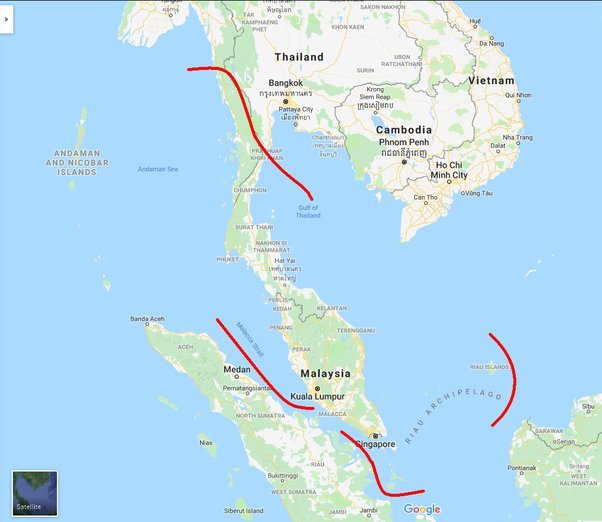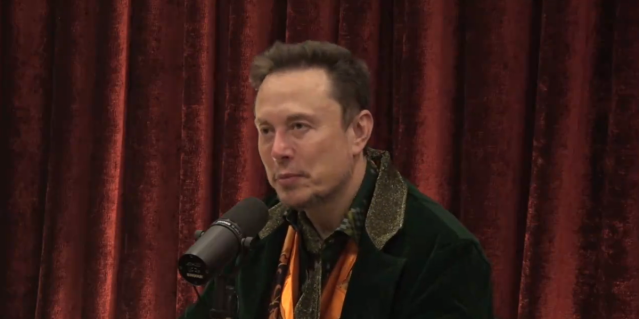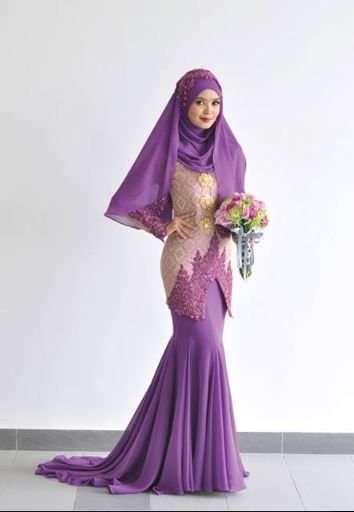The term “Malay” refers to an ethnic group, while “Malaysian” denotes a nationality. Malaysians include various ethnic groups, including Malays.
Understanding the difference between “Malay” and “Malaysian” is crucial for appreciating Malaysia’s cultural diversity. Malay people belong to an ethnic group native to Malaysia, Indonesia, Brunei, and southern Thailand. They share a common language, customs, and Islamic faith. “Malaysian,” on the other hand, refers to any citizen of Malaysia, a multicultural nation comprising Malays, Chinese, Indians, and other ethnicities.
This distinction highlights Malaysia’s rich tapestry of cultures and traditions. Recognizing these differences helps in appreciating the unique identities and contributions of each group within the Malaysian society.

Credit: ling-app.com
Geographical Roots
The terms Malay and Malaysian often confuse people. Their geographical roots define their differences. Malay refers to a cultural group, while Malaysian signifies a national identity. Understanding their origins helps differentiate them clearly.
Malay: A Cultural Identity
The Malay people originated from the Malay Peninsula and parts of Southeast Asia. They share a common language, culture, and traditions. Their roots trace back to ancient kingdoms in these regions. The Malay culture includes unique customs and practices.
Here’s a brief overview:
- Language: The Malay language, or Bahasa Melayu
- Religion: Predominantly Islam
- Traditions: Rich in festivals, arts, and cuisine
Geographically, the Malay population spans across Malaysia, Indonesia, and parts of Thailand and Singapore.
Malaysian: A National Identity
Malaysian refers to a person from the country of Malaysia. Malaysia is a Southeast Asian nation formed in 1963. It consists of Peninsular Malaysia and East Malaysia on Borneo.
Malaysian identity encompasses various ethnic groups:
- Malay: The largest ethnic group
- Chinese: Significant minority group
- Indian: Another notable minority
- Indigenous: Various native groups in East Malaysia
Malaysia’s identity is marked by its multicultural society. This blend creates a unique national identity, distinct from individual ethnic identities.
Comparing Malay and Malaysian:
| Aspect | Malay | Malaysian |
|---|---|---|
| Definition | Cultural group | National identity |
| Geographical Roots | Malay Peninsula, Southeast Asia | Country of Malaysia |
| Language | Bahasa Melayu | Multiple languages |
| Ethnic Composition | Predominantly Malay | Multi-ethnic |
Historical Context
The terms “Malay” and “Malaysian” hold distinct historical backgrounds. Understanding these differences helps explain their unique identities.
The Malay Archipelago
The Malay Archipelago is a large group of islands. It includes present-day Malaysia, Indonesia, and the Philippines. The region is rich in cultural diversity.
Historically, the Malay people lived across these islands. They shared similar languages, customs, and traditions. Trade routes linked them, fostering cultural exchanges.
Below is a simple table showing some key islands in the Malay Archipelago:
| Island | Current Country |
|---|---|
| Sumatra | Indonesia |
| Borneo | Malaysia, Indonesia |
| Mindanao | Philippines |
Formation Of Malaysia
Malaysia was formed in 1963. It united Malaya, North Borneo, Sarawak, and Singapore. Singapore later became independent in 1965.
Malaysia’s formation created a new national identity. The term “Malaysian” refers to citizens of this nation. It includes various ethnic groups like Malays, Chinese, and Indians.
Key events in Malaysia’s formation are outlined below:
- 1948: Federation of Malaya established.
- 1957: Malaya gained independence from British rule.
- 1963: Formation of Malaysia.
- 1965: Singapore’s independence from Malaysia.
These historical milestones highlight the distinctions between Malay and Malaysian identities.
Ethnic Composition
The terms Malay and Malaysian often cause confusion. Understanding their differences requires looking at their ethnic composition. The Malay ethnic group refers to a specific ethnic category. Meanwhile, being Malaysian encompasses a broader, multi-ethnic identity.
Malay Ethnic Group
The Malay ethnic group is one of the largest in Southeast Asia. They primarily live in Malaysia, Indonesia, and Brunei. In Malaysia, Malays are recognized as the majority ethnic group. They adhere to Islam and speak the Malay language. Their culture includes unique customs, traditions, and a rich heritage.
Malays have a distinct identity. This identity sets them apart from other ethnic groups. Their traditional dress, food, and festivals reflect their unique culture. The Malay community values family and religious practices. They celebrate significant events like Hari Raya Aidilfitri and Hari Raya Haji.
The Malaysian Melting Pot
Malaysia is a true melting pot of cultures and ethnicities. The term Malaysian includes all citizens of Malaysia, regardless of ethnicity. The country has three main ethnic groups: Malays, Chinese, and Indians.
Each group brings its own cultural identity. This diversity creates a rich, multi-ethnic society. Malaysians celebrate a variety of festivals. These include Chinese New Year, Deepavali, and Hari Gawai. The country’s food scene is also a blend of different cuisines.
| Ethnic Group | Main Religion | Main Language | Key Festivals |
|---|---|---|---|
| Malay | Islam | Malay | Hari Raya Aidilfitri, Hari Raya Haji |
| Chinese | Buddhism, Taoism | Mandarin, Cantonese | Chinese New Year, Mooncake Festival |
| Indian | Hinduism | Tamil, Hindi | Deepavali, Thaipusam |
In Malaysia, diversity is celebrated. The mixture of ethnicities enriches the nation. This diversity shapes Malaysia’s unique identity.

Credit: www.quora.com
Language And Dialects
The terms Malay and Malaysian often confuse people, especially about language and dialects. Understanding the difference helps appreciate Malaysia’s rich linguistic heritage.
The Malay Language
The Malay language is called Bahasa Melayu. It’s the official language of Malaysia. Malays in Malaysia primarily speak this language. It also serves as a unifying language for different ethnic groups.
Here are some key points about the Malay language:
- Uses the Latin script.
- Includes influences from Sanskrit, Arabic, and Portuguese.
- Simple grammar and easy to learn.
Linguistic Diversity In Malaysia
Malaysia boasts rich linguistic diversity. Apart from Malay, many other languages and dialects thrive.
Key languages and dialects in Malaysia include:
| Language | Spoken By | Regions |
|---|---|---|
| Mandarin | Chinese Malaysians | Urban Areas |
| Tamil | Indian Malaysians | Peninsular Malaysia |
| English | Widely Spoken | Nationwide |
| Indigenous Languages | Various Ethnic Groups | East Malaysia |
Each ethnic group adds its own flavor to Malaysia’s linguistic landscape. This diversity makes Malaysia a fascinating place for language enthusiasts.
Cultural Practices
Understanding the cultural practices of the Malay and Malaysian people is vital. These practices highlight the rich diversity and unity within the country. Below we explore the unique traditions of the Malay people and the cultural integration in Malaysia.
Traditions Of The Malay People
The Malay people have a long history filled with unique traditions. One key tradition is the celebration of Hari Raya Aidilfitri. This festival marks the end of Ramadan. Families gather to enjoy special meals and visit each other’s homes.
Another important tradition is the practice of Bersanding during Malay weddings. The bride and groom sit on a decorated platform. Guests then shower them with blessings and gifts. This event symbolizes the union of two families.
Traditional Malay attire is also significant. Men wear the Baju Melayu while women wear the Baju Kurung. These clothes are often made from colorful fabrics and are worn during special occasions.
Cultural Integration In Malaysia
Malaysia is known for its cultural integration. People from different ethnic backgrounds live in harmony. This includes Malays, Chinese, Indians, and other ethnic groups.
One example is the multicultural festivals celebrated in Malaysia. Malaysians celebrate Chinese New Year, Deepavali, and Christmas together. These festivals promote unity and mutual respect.
Another example is the Malaysian cuisine. The food reflects a blend of different cultural influences. Dishes like Nasi Lemak, Char Kway Teow, and Roti Canai are popular. These dishes showcase the rich culinary heritage of Malaysia.
Educational institutions also promote cultural integration. Schools teach students about various cultural practices. This helps in fostering understanding and appreciation among young Malaysians.
Political Significance
The terms Malay and Malaysian carry important political meanings. Understanding these differences helps in grasping Malaysia’s political landscape. Malays play a significant role in the country’s politics. Malaysian citizenship also impacts political engagement.
The Role Of Malays In Politics
Malays hold a special status in Malaysia. The Federal Constitution recognizes Malays as Bumiputera, meaning “sons of the soil.” This grants them specific rights and privileges.
- Preferential treatment in education
- Reserved positions in the civil service
- Special economic opportunities
Political parties like UMNO (United Malays National Organization) represent Malay interests. UMNO has been a dominant force in Malaysian politics. Their influence shapes policies and governance.
Malaysian Citizenship And Politics
Being Malaysian means holding citizenship in Malaysia. Citizens include diverse ethnic groups: Malays, Chinese, Indians, and others. Malaysian citizens have the right to vote and participate in politics.
All citizens can join political parties. Major parties include:
- UMNO
- Parti Keadilan Rakyat (PKR)
- Malaysian Chinese Association (MCA)
- Malaysian Indian Congress (MIC)
Each party represents different ethnic and social interests. This diversity shapes the nation’s political landscape.
Social And Legal Distinctions
Understanding the social and legal distinctions between Malay and Malaysian can be complex. These differences impact the rights and privileges of individuals in Malaysia. Let’s explore these distinctions in more detail.
Bumiputera Status For Malays
The term Bumiputera refers to the indigenous people of Malaysia. Malays are considered Bumiputera, giving them special privileges. These include economic and educational benefits.
- Special quotas in universities
- Reserved positions in government jobs
- Discounts on property purchases
These privileges aim to uplift the socio-economic status of Malays. They help ensure equal opportunities for the indigenous population.
Rights Of Malaysian Citizens
All Malaysian citizens enjoy certain rights, regardless of their ethnicity. These rights are protected by the Federal Constitution. They include:
- Freedom of speech
- Right to education
- Right to vote
While Malays have additional privileges, all citizens are equal before the law. This ensures a balanced and fair society for everyone.
Economic Implications
The terms Malay and Malaysian often cause confusion. They represent different identities. This difference has significant economic implications. Let’s explore how.
Malay Economic Activities
Malays primarily engage in traditional sectors. These include:
- Agriculture: Many Malays work in paddy fields and rubber plantations.
- Fisheries: Fishing is a common occupation in coastal areas.
- Handicrafts: Malay communities produce batik and songket textiles.
These activities are vital. They support local economies and preserve cultural heritage.
Economic Opportunities For Malaysians
Malaysians, on the other hand, have diverse opportunities. These span across various sectors. Key areas include:
- Technology: Malaysians excel in tech startups and innovation.
- Finance: Kuala Lumpur is a financial hub with many job opportunities.
- Tourism: Tourism is booming, offering jobs in hospitality and services.
Education and urbanization play crucial roles. They provide Malaysians with better job prospects and economic growth.
| Economic Activities | Malay | Malaysian |
|---|---|---|
| Agriculture | High | Moderate |
| Technology | Low | High |
| Finance | Low | High |
| Tourism | Moderate | High |
Perspectives On Identity
The concepts of identity can be complex and multifaceted. Understanding the difference between Malay and Malaysian brings intriguing perspectives. These perspectives shape the cultural landscape in Malaysia. Let’s delve into how identity is perceived and expressed in this vibrant country.
Self-identification Among Malays
Self-identification is crucial for many people. Malays often connect with their ethnic roots deeply. They cherish their traditions, language, and customs. This connection shapes their daily lives and social interactions.
In Malaysia, Malays form the majority ethnic group. This status impacts their self-identification profoundly. Malays may take pride in their heritage and community. Their identity reflects in their food, dress, and festivals.
For instance, the Malay language is a significant part of their identity. They use it in schools, homes, and workplaces. Speaking Malay strengthens their sense of belonging.
National Versus Ethnic Identity In Malaysia
In Malaysia, people often balance national and ethnic identities. Malaysians come from diverse ethnic backgrounds. These include Malays, Chinese, Indians, and indigenous groups.
National identity refers to being Malaysian. This identity unites people across different ethnicities. It emphasizes shared values, laws, and national pride.
Ethnic identity highlights cultural heritage and traditions. Malays, for example, have their unique customs and beliefs. Balancing these identities can be challenging but enriching.
Here’s a quick comparison:
| National Identity | Ethnic Identity |
|---|---|
| Malaysian | Malay |
| Unity and National Pride | Cultural Heritage |
| Common Values | Language and Customs |
Both identities coexist and contribute to Malaysia’s rich cultural tapestry. Malaysians celebrate diversity and unity. This makes their country unique and vibrant.

Credit: www.researchgate.net
Frequently Asked Questions
Are People From Malaysia Called Malay?
Not all people from Malaysia are called Malay. Malays are a specific ethnic group in Malaysia. Other ethnic groups include Chinese, Indian, and indigenous peoples.
What Nationality Is A Malay?
A Malay is typically a citizen of Malaysia, Indonesia, Singapore, Brunei, or Southern Thailand.
What Is Malay Called Now?
Malay is now called Bahasa Malaysia.
Do They Speak Malay In Malaysia?
Yes, they speak Malay in Malaysia. Malay is the official language and widely used in daily communication.
Conclusion
Understanding the difference between Malay and Malaysian is crucial. Malay refers to an ethnic group, while Malaysian denotes nationality. Recognizing these distinctions fosters better cultural awareness and appreciation. This knowledge helps avoid common misunderstandings, making interactions more respectful and meaningful.
Stay informed and celebrate diversity.



